Artificial Intelligence (AI) is no longer a concept limited to science fiction. In 2025, AI has become an integral part of our daily lives, shaping how we work, shop, communicate, and even relax. The technological revolution is making our lives more convenient, efficient, and personalized. A couple of them are smart home automation and AI-powered healthcare.
In this article, we will explore:
- How AI is being used in everyday life
- The technologies behind it
- Growing impact on society
What is Artificial Intelligence?
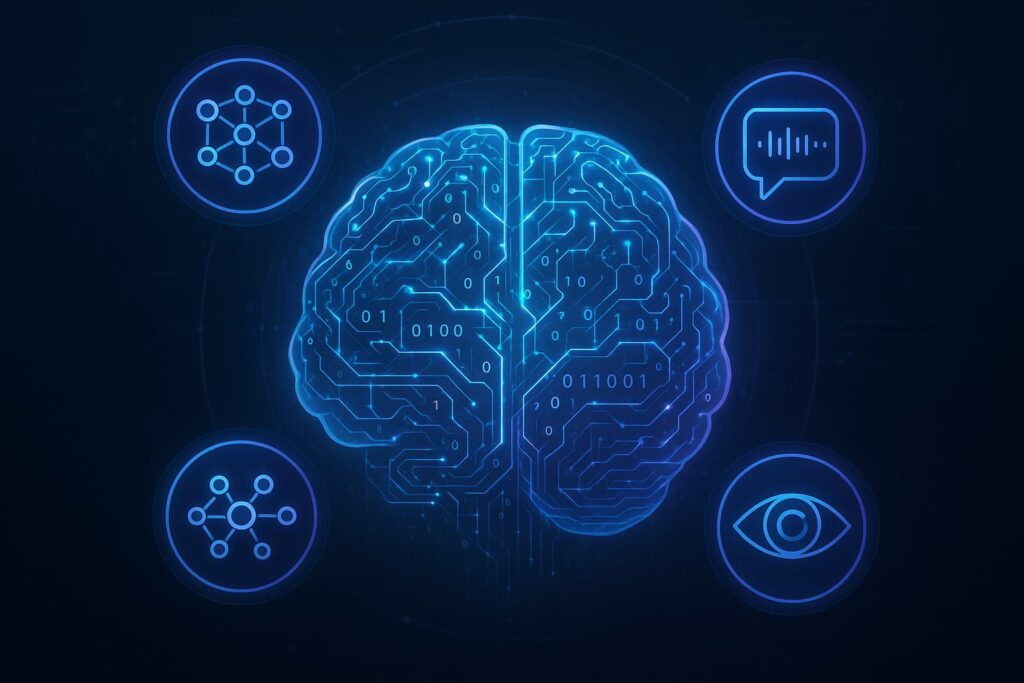
Artificial Intelligence refers to the simulation of human intelligence by machines. It involves machine learning (ML), natural language processing (NLP), computer vision, and robotic process automation (RPA). AI systems can analyze data, learn from it, and make decisions, often faster and more accurately than humans.
AI in Our Daily Lives: Real-World Examples
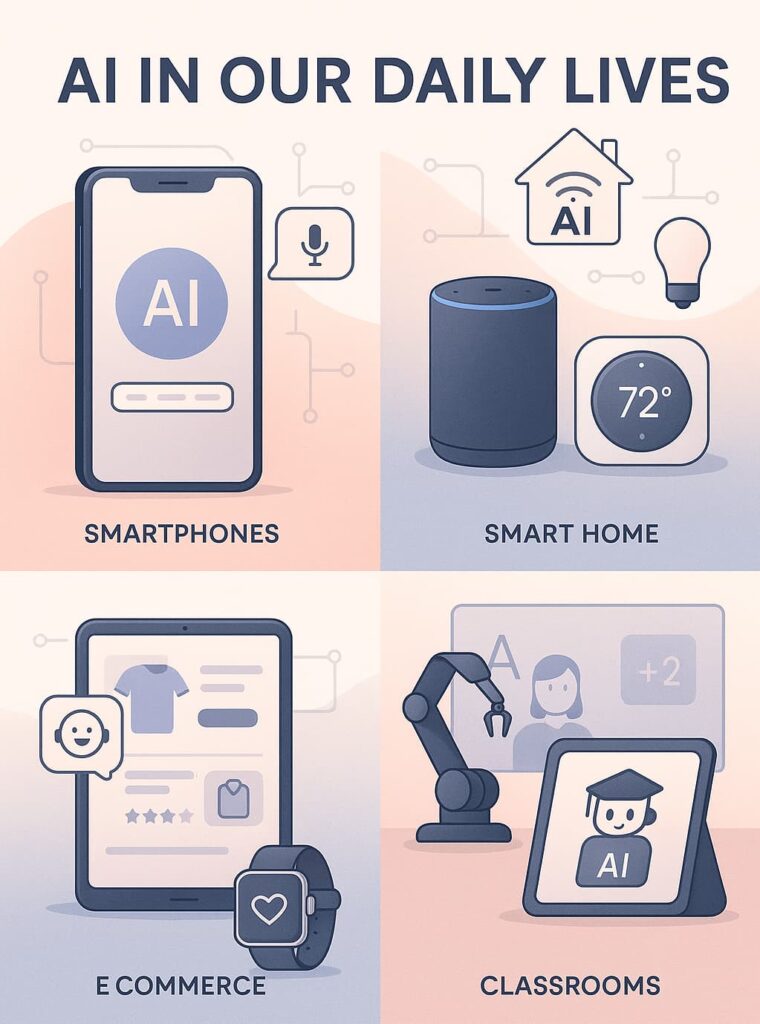
Smartphones and Virtual Assistants
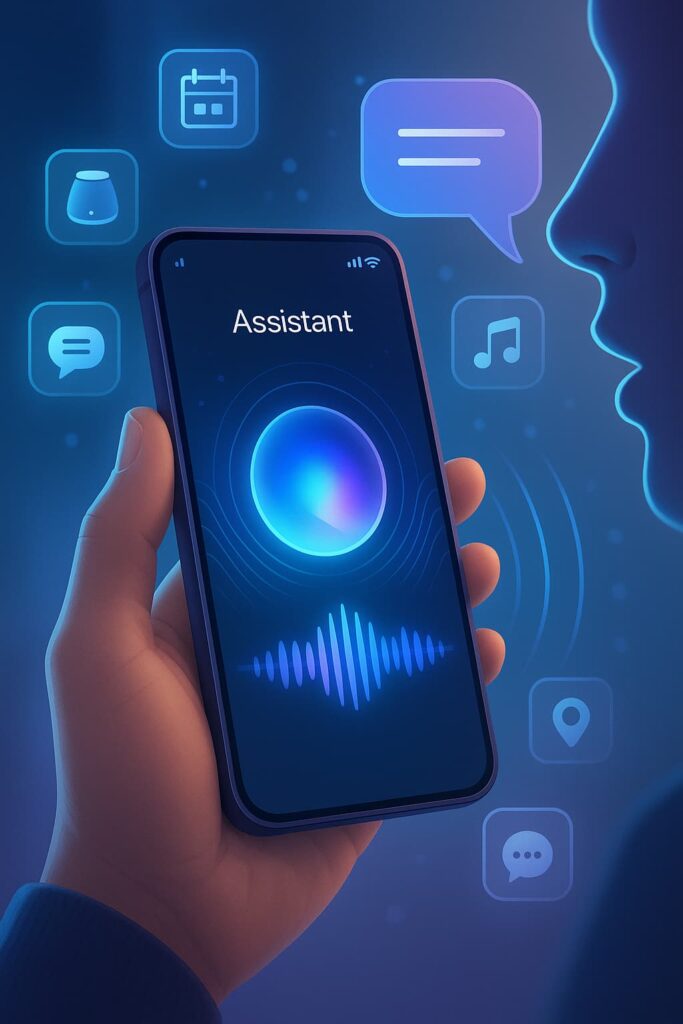
The smartphone you carry is likely powered by AI. Virtual assistants like Siri, Google Assistant, and Alexa use speech recognition and natural language processing to understand commands, answer questions, and even do tasks like booking appointments or playing your favorite song.
Example Use: Setting reminders, voice searches, language translations, and even detecting spam calls. AI-driven mobile apps are also helping remote professionals work smarter and stay organized. Read more in our article on the Best Productivity Apps for Remote Workers in 2025.
Smart Home Devices
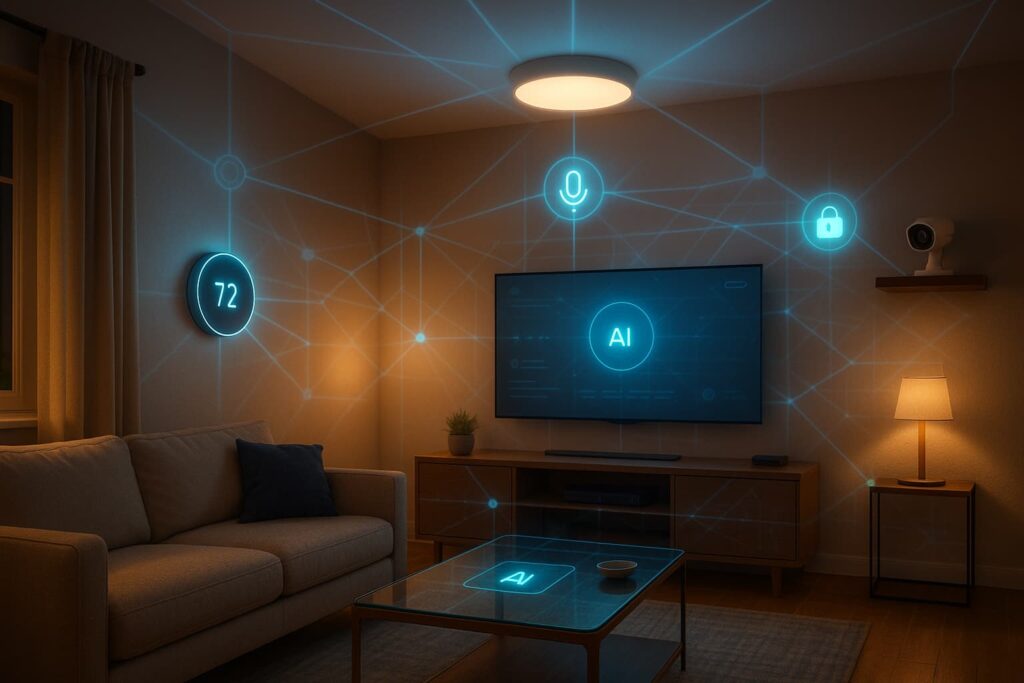
Smart homes use AI-driven devices to automate routine tasks, improve energy efficiency, and enhance security.
- Smart Thermostats learn your habits and adjust temperatures accordingly.
- AI Security Cameras can detect unusual movements and send real-time alerts.
- Voice-controlled lights and appliances respond to user commands using AI integration.
AI in Healthcare
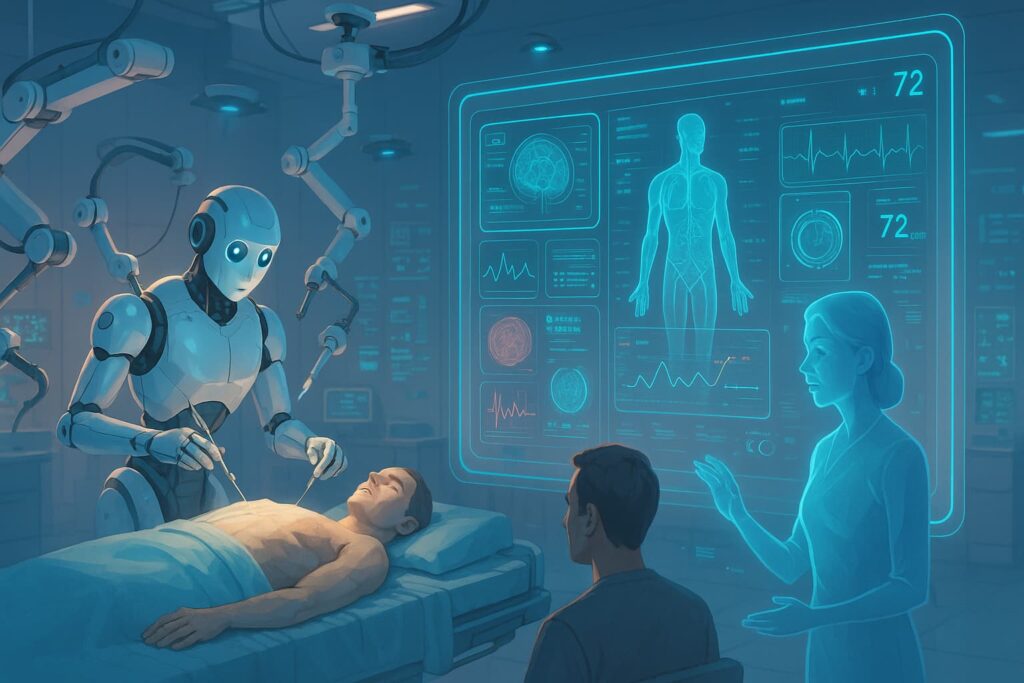
AI is revolutionizing the healthcare industry through predictive analytics, medical imaging, and virtual health assistants.
- AI tools like IBM Watson can diagnose diseases faster and more accurately.
- Chatbots provide 24/7 assistance, helping patients with symptoms or scheduling appointments.
- AI is also used in robot-assisted surgeries, reducing risks and improving recovery time.
E-commerce and Personalized Shopping
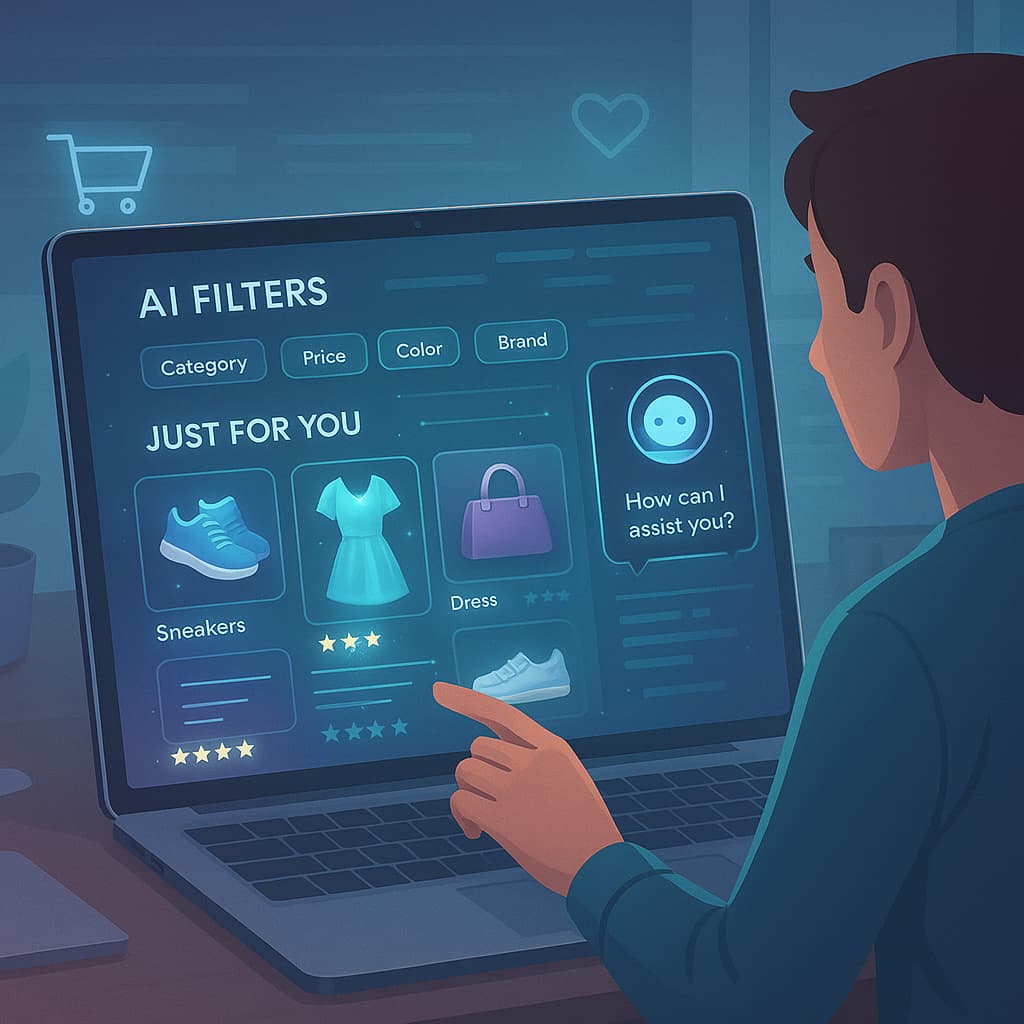
Ever noticed how online stores like Amazon recommend products that suit your taste? That’s AI at work.
- AI algorithms analyze browsing history, purchase behavior, and product reviews.
- Chatbots on e-commerce sites help guide your purchase journey.
- Visual search and AI-based filters make online shopping seamless.
As online AI grows, financial scams are also evolving. Learn how to protect yourself in our guide on How to Identify and Prevent Online Financial Scams.
AI in Education
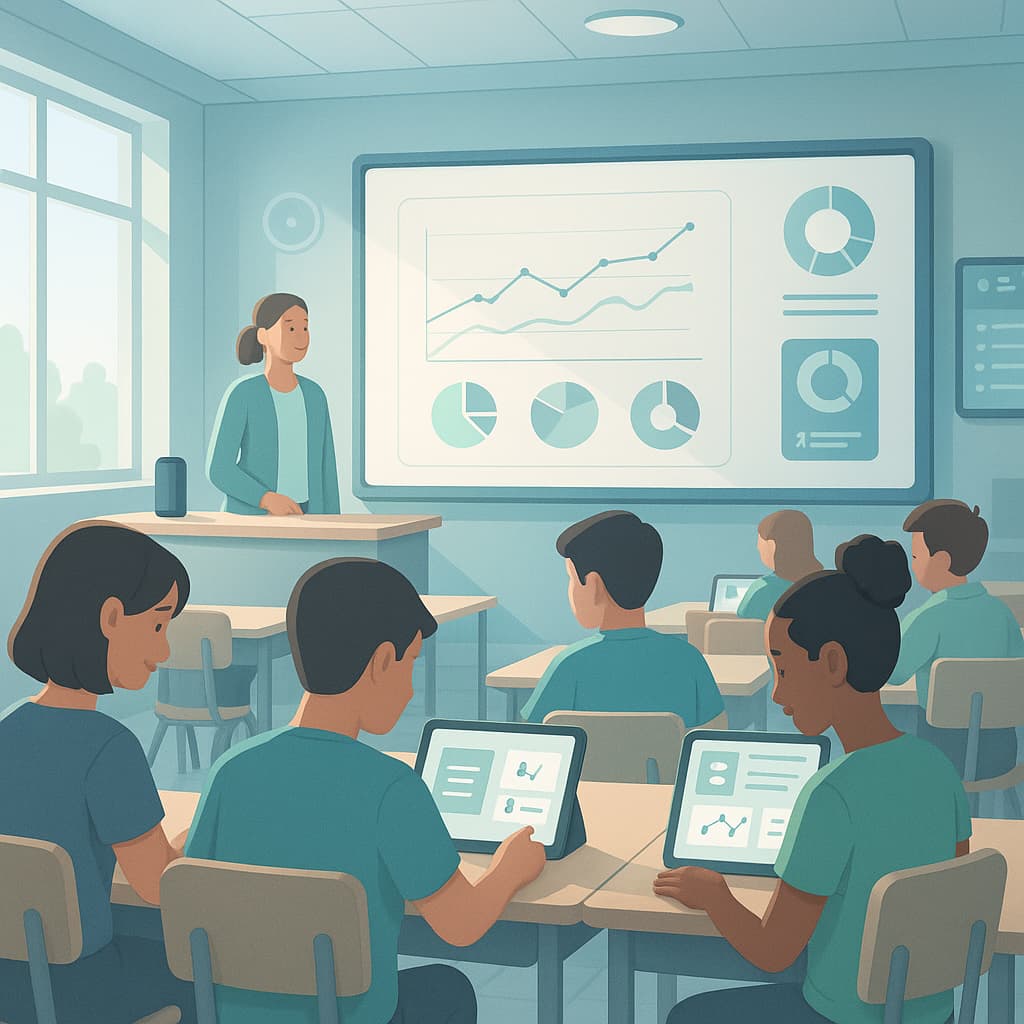
AI tools are enhancing the way students learn and teachers teach.
- AI-powered tutoring apps offer personalized lessons.
- Automated grading systems save teachers time.
- Predictive analytics can identify students at risk and provide early interventions.
Social Media and Entertainment
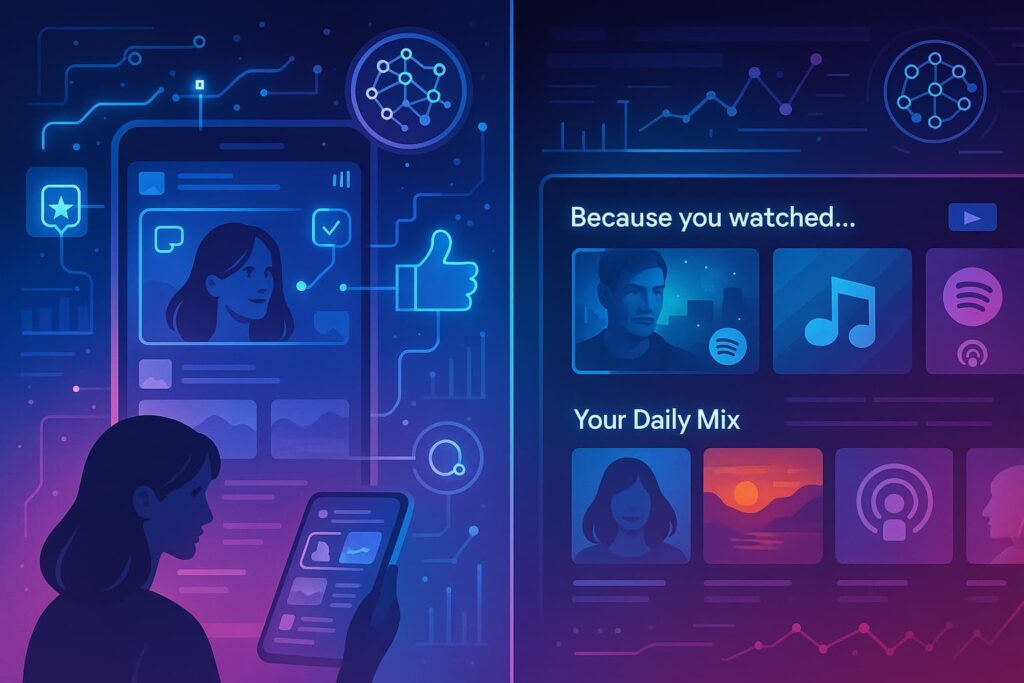
Your favorite social media platforms like Facebook, Instagram, and TikTok rely on AI.
- Recommendation engines suggest content based on user behavior.
- AI content moderation removes spam and harmful content.
- In streaming services like Netflix and Spotify, AI curates personalized playlists and shows.
AI in Transportation
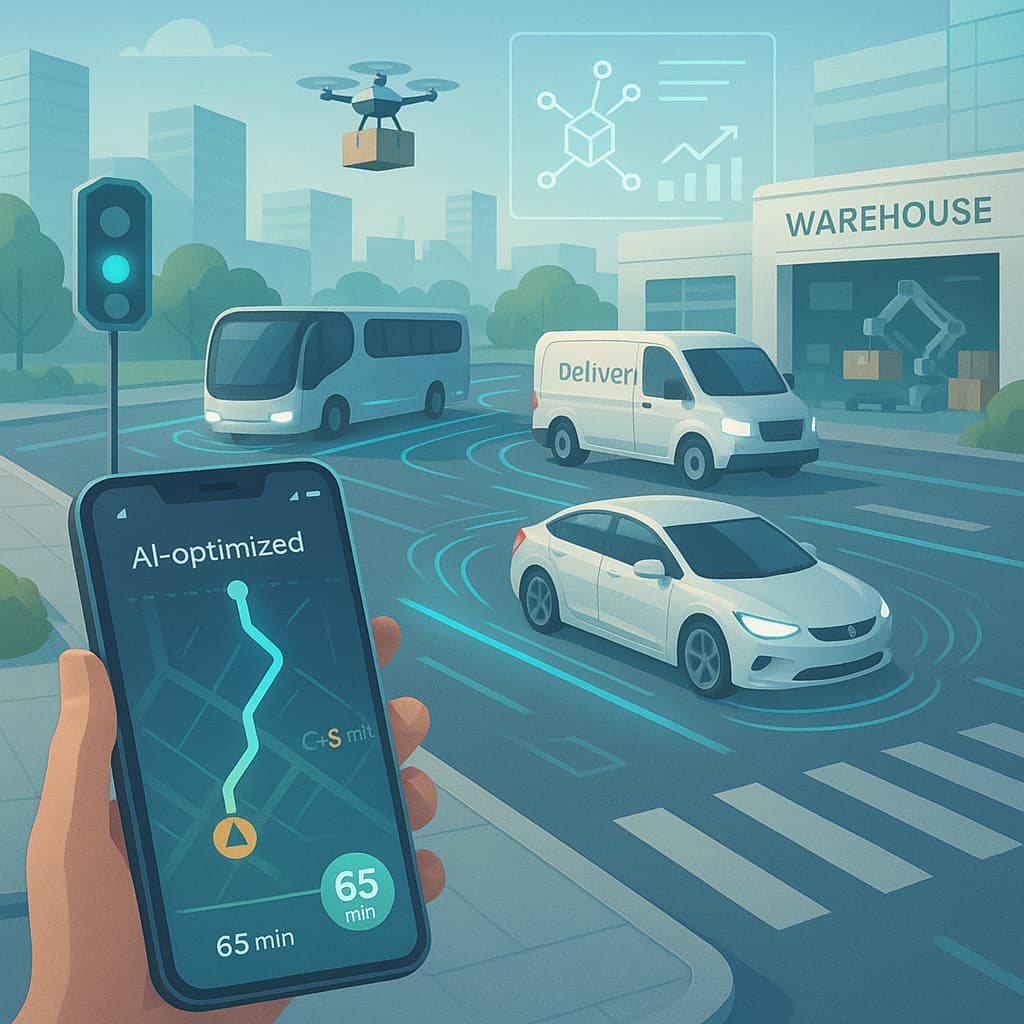
From autonomous vehicles to route optimization, AI drives innovation in the transport sector.
- Apps like Google Maps use real-time traffic data powered by AI to suggest quicker routes.
- Self-driving cars use sensors, cameras, and deep learning to navigate roads.
- AI in logistics ensures faster, smarter deliveries.
The Technology Behind Everyday AI
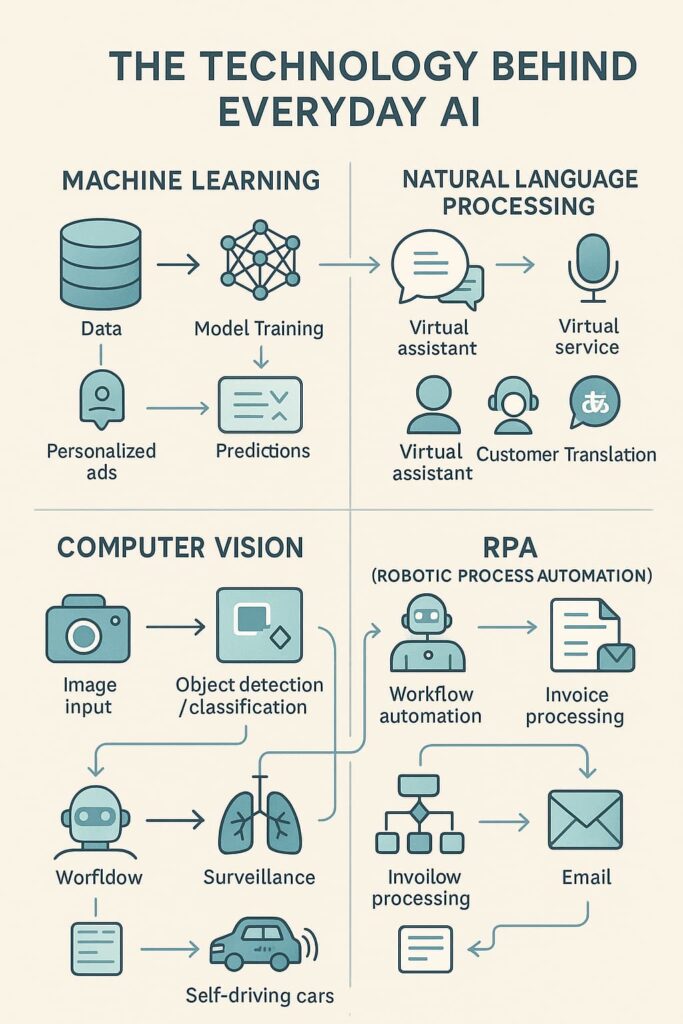
Several key technologies power the rise of AI in everyday life:
- Machine Learning – Helps systems improve over time without human intervention.
- Natural Language Processing (NLP) – Enables machines to understand and respond to human language.
- Computer Vision – Allows machines to interpret visual data from the world.
- Robotic Process Automation (RPA) – Automates repetitive tasks in business and IT.
Benefits of AI in Everyday Life
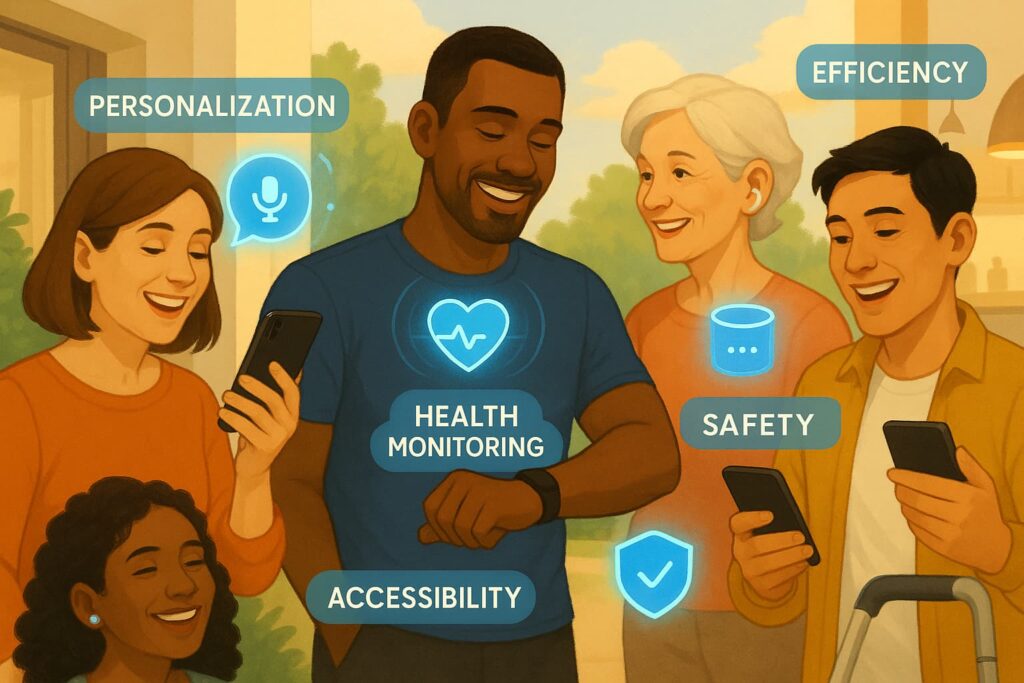
- Increased Efficiency – Automates mundane tasks and saves time.
- Improved Personalization – Delivers tailor-made experiences in apps and services.
- Enhanced Safety – From AI security systems to accident prediction.
- Better Decision Making – AI analyzes data to offer insightful suggestions.
- 24/7 Availability – Chatbots and virtual assistants never sleep.
AI is also playing a major role in emerging global economies by enhancing productivity and innovation. Explore the countries leading this transformation in our piece on Top Emerging Economies to Watch.
Concerns and Challenges
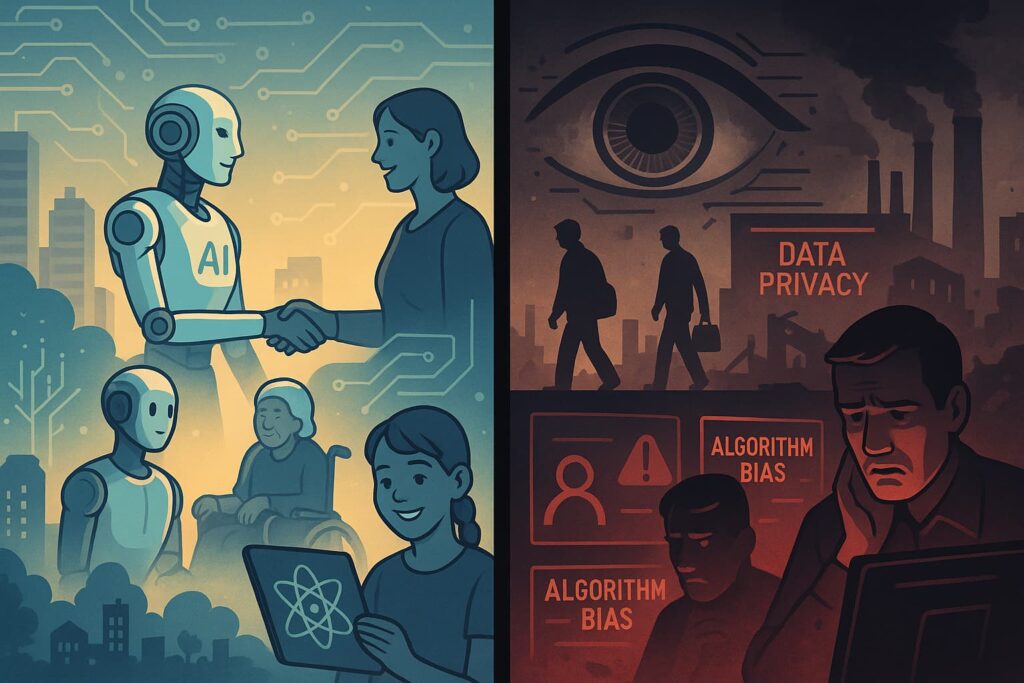
Despite its benefits, AI comes with challenges:
- Privacy Concerns – Data collection and usage raise ethical issues.
- Job Displacement – Automation could replace specific human jobs.
- Bias in AI Algorithms – If AI models are not trained properly, they can reinforce societal biases.
- Security Risks – If AI-powered systems are not secured, they can be misused, leading to destruction.
As AI expands, its regulation and ethical use are critical for long-term benefits. For a deeper understanding, read our feature on US Tech Policies Impacting the World.
The Future of AI: What’s Next?
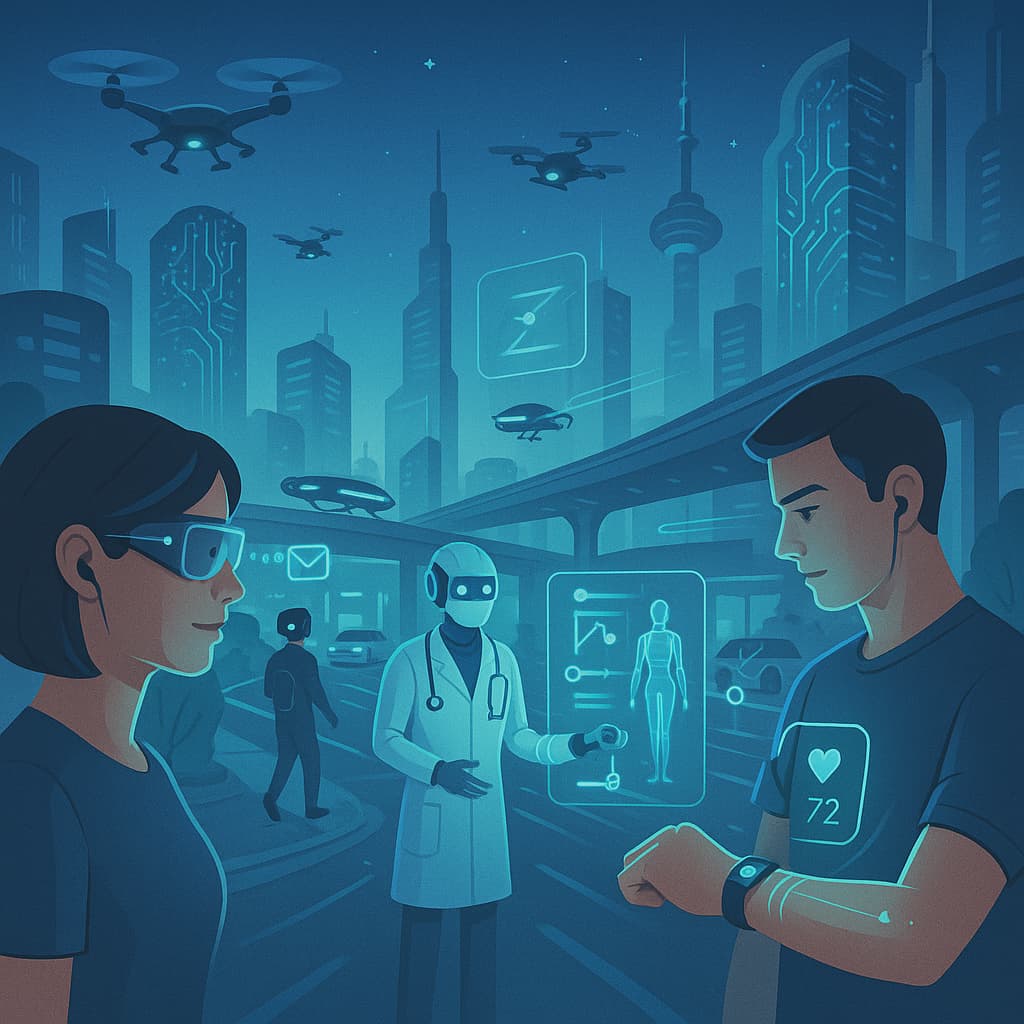
The integration of AI will deepen across all industries. We can expect:
- More autonomous vehicles in public transportation.
- AI doctors and diagnostic tools in rural or underserved areas.
- Smarter cities with AI managing traffic, energy use, and public safety.
- Wearable AI devices offer real-time health tracking and suggestions.
As AI becomes more sophisticated, ethical use and human-AI collaboration will be crucial.
How to Prepare for an AI-Driven Future
- Learn AI basics – Whether you’re a student or a professional.
- Use AI tools – Familiarize yourself with apps and platforms using AI.
- Stay updated – Follow AI trends, breakthroughs, and innovations.
- Prioritize digital privacy – Use tools and settings to control how your data is used.
AI is also influencing global investment decisions and fintech. Want to know whether it’s a good time to invest in digital currencies? Check out our article: Should You Invest in Bitcoin Now? A Comprehensive Analysis.
Conclusion:
The rise of AI in everyday life is not just a trend but a pure transformation. Understanding and using it well can help us be more productive and make better decisions. AI is already there, whether it is through your phone, your home, or your workplace. This is just the beginning, and we will see a lot more miracles of AI in no time.

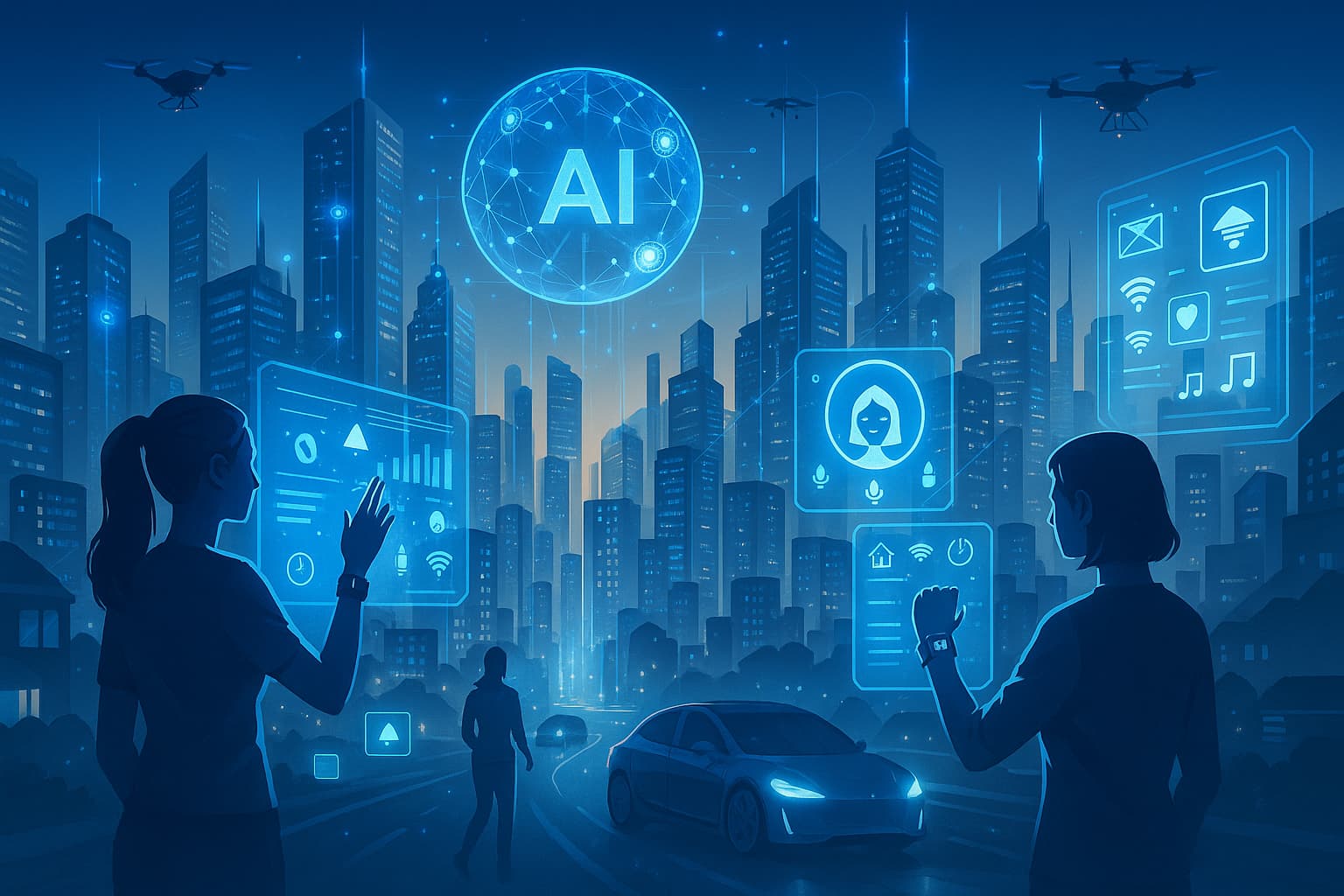
4 replies on “The Rise of AI in Everyday Life”